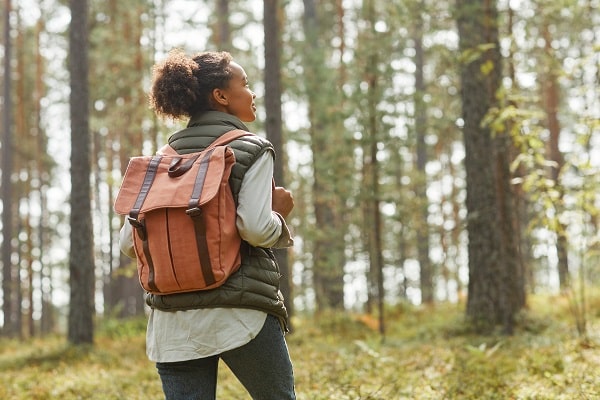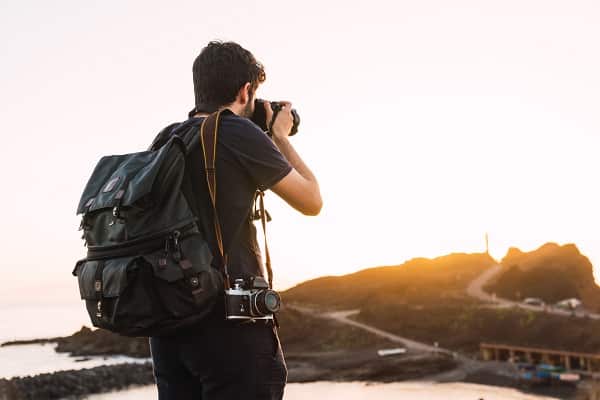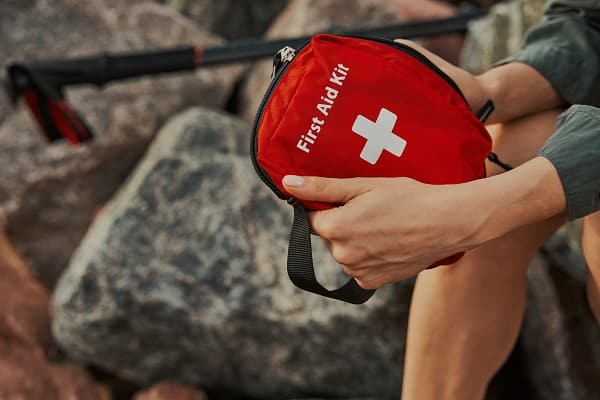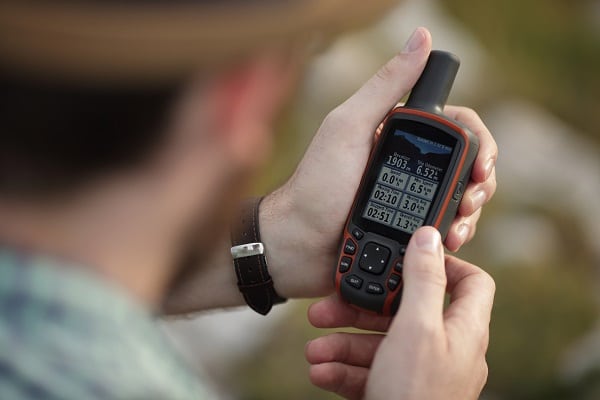Backpacking is a great way to see the world and experience new cultures. It can also be a lot of fun! However, it can be a little overwhelming trying to get started if you’ve never done it before. This guide will teach you everything you need to know about backpacking for beginners, from what to pack to how to find accommodations on your trip. It will also give tips on staying safe while on your trip. So, whether you’re planning your first backpacking adventure or just want to learn more about this exciting form of travel, read on!
Contents
The Art Of Backpacking
For many people, backpacking is the ultimate way to experience the outdoors. With nothing but a backpack and some basic supplies, you can explore remote locations and witness natural wonders that most people will never see. But backpacking is more than just a way to see the world; it’s also an art form. To be a successful backpacker, you need to know how to pack light but still bring everything you need. You also need to be able to read a map and navigate rugged terrain. And perhaps most importantly, you need to be able to find your way back to civilization if something goes wrong. Backpacking is not for everyone. But for those who have the skills and the courage to venture into the wilderness, it can be an immensely rewarding experience.
Basics Of Backpacking For Beginners

There are a few basics that every backpacker should know before hitting the trail. First and foremost, backpacking means traveling with only a small backpack and relying on your physical strength to cover long distances, which means that you need to be in good physical and mental shape. One thing that shouldn’t be overlooked is that backpacking can be challenging, especially for those new to the activity. Another essential thing to remember is that backpacking differs from camping out or hiking. With backpacking, you typically carry all your supplies with you and cover long distances, so you need to be prepared for all kinds of weather conditions and terrain. Additionally, a good backpacker needs to be able to make smart decisions in the wilderness, including knowing how to find water and shelter and how to stay safe from potential hazards like wild animals or dangerous weather.
Choosing The Right Backpack

When planning a backpacking trip, one of the most important decisions you will make is choosing the right backpack. With so many different styles and brands on the market, it can be challenging to know where to start. However, there are a few key factors to consider that will help you narrow down your options. First, think about the size and shape of your body. You want a backpack that will fit snugly and distribute weight evenly. Second, consider what type of terrain you will be hiking through. If you plan on doing a lot of off-trail hiking, you will need a backpack with good suspension and plenty of pockets for storing gear. Finally, consider the weather conditions you will likely encounter on your trip. If you are hiking in hot weather, look for a backpack with ventilation panels to help keep you cool. By choosing the right backpack, you can ensure that your backpacking trip is safe and enjoyable.
Things Every Backpacker Needs To Bring

In addition to choosing the right backpack, there are a few other essentials that every backpacker needs to bring on their trip. First and foremost is a good, sturdy pair of hiking boots or shoes. These should be comfortable, waterproof, and provide plenty of support for your feet and ankles. In addition to hiking footwear, you will also want to bring plenty of warm clothing, such as a fleece jacket and wool socks. Other essential items to pack include sunscreen, bug spray, a first aid kit, and a map or GPS device. And remember that leaving the comforts of home behind doesn’t mean you have to leave your favorite snacks behind! Packing high-energy trail mixes or protein bars can help you stay energized while hiking.
Packing Your Backpack

Packing your backpack for a backpacking trip is arguably the most important task when getting ready for your trip. And if you don’t pack your backpack correctly, it can result in a lot of unnecessary pain and discomfort. There are many things to consider, from the length of your trip to the weight of your gear. The first step is to pack light. As a new backpacker, you likely won’t need as much equipment or supplies as more experienced hikers. Take time to carefully consider each item you plan to pack, and leave anything you don’t truly need behind.
Next, try to distribute the weight of your gear evenly across your body, which will help ensure that you are comfortable no matter how long you are on the trail and prevent any strain or injury to your joints or muscles. Finally, ensure that everything is secure and easy to access while hiking.
Getting Your Body Ready For Backpack

If you typically don’t do a lot of strenuous activities, you will want to take some time to prepare your body for a backpacking trip. Start by engaging in regular cardiovascular exercise, such as running or cycling, at least a few weeks before you hit the trail. In addition to building up your endurance, this will help strengthen your muscles and increase blood flow to your feet and ankles. You should also spend time stretching and doing basic strength training exercises, such as lunges or squats, which will help improve your balance and strengthen the smaller muscles that are often overlooked but which play an important role in backpacking.
Tips For Staying Safe On Your Trip

When you’re on a backpacking trip, it’s essential to stay safe. Here are a few simple tips that will help keep you safe and comfortable while out on the trail:
- Always let someone know where you are going and when you plan to return, which can be your family, friends, or even another traveler you meet on the trail. Having someone know your plans can help ensure that if something does happen, you will have someone to contact for help.
- Always carry a map or GPS device when hiking, and ensure it is up-to-date, allowing you to always find your way back to safety in case of an emergency or unexpected detour.
- Avoid hiking alone, and always be aware of your surroundings and potential risks. Being alert and prepared can help you stay safe no matter what challenges you might face on the trail.
Follow This Guide To Backpacking For Beginners!
Backpacking for beginners can be a truly rewarding and exciting experience. Whether you are planning your first trip or are an experienced backpacker looking to try a new route, it is essential to remember these few key tips to ensure that you stay safe, comfortable, and well-prepared on your journey. Once you have the right information, gear, and accommodations, you can confidently head out on the trail and explore all the great outdoors has to offer. Then all that you will have to do is enjoy yourself!


